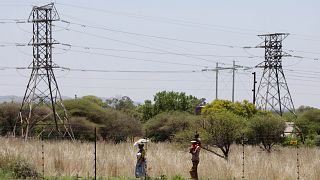The Morning Call
Next week, the Court of Arbitration for Sport (CAS) will hear a case between South Africa’s star athlete Caster Semenya and the International Association of Athletics Federations (IAAF), in what could be the climax of a tussle that has fuelled debate for almost a decade now.
The court will deliver a ruling that will determine whether Semenya continues to compete in track and field events without the need for performance limiting medication as proposed by the IAAF.
IAAF’s case
The IAAF wants to introduce new rules that require such athletes to keep their testosterone levels below a prescribed amount “for at least six months prior to competing”.
The IAAF classifies females like 28-year-old Semenya as athletes with “differences of sexual development” (DSD).
‘’…if a DSD athlete has testes and male levels of testosterone, they get the same increases in bone and muscle size and strength and increases in haemoglobin that a male gets when they go through puberty, which is what gives men such a performance advantage over women.
“Therefore, to preserve fair competition in the female category, it is necessary to require DSD athletes to reduce their testosterone down to female levels before they compete at international level.”
Semenya’s defence
Semenya has previously said she chooses to focus on her health, and keeping in shape for competitions, rather than worrying about ‘IAAF’s business’.
‘I have no time for nonsense’: S. Africa’s Semenya responds to new IAAF regulationsHer lawyers will argue next week that Semenya was born a woman, reared and socialised as a woman, and has been legally recognised as a woman all her life. That she has always competed in athletics as a woman, and should therefore be permitted to compete in the female category without discrimination.
Semenya, who is a two-time Olympic champion and three-time world champion has also described the IAAF scrutiny, that she has endured since 2009 as unfair.
‘‘It is not fair. It is not fair that I am told I must change. It is not fair that people question who I am. I just want to run naturally, the way I was born.’‘
Who will the court believe? The IAAF or Caster Semenya?
Semenya will be counting on the precedent set in 2015 when CAS ruled against IAAF rules preventing another DSD athlete, India’s Dutee Chand from competing against fellow women, unless she took medication to limit her testosterone levels.





![Africanews celebrates fifth anniversary [Night Shift]](https://static.euronews.com/articles/stories/05/57/72/74/320x180_cmsv2_6b1e7837-a917-526b-b3b4-4582a3f8bcac-5577274.jpg)
![Africanews celebrates fifth anniversary [Morning Call]](https://static.euronews.com/articles/stories/05/57/72/70/320x180_cmsv2_a6c857d4-80a3-510a-88e6-f060ea8d9ee9-5577270.jpg)






Go to video
Nelson Mandela International Day 2025: The power to end poverty is in our hands
Go to video
Semenya ruling shakes foundations of gender rules in sport
01:53
SMES under pressure as business confidence hits four-year low in South Africa
01:18
SA athlete Semenya did not receive fair trial, ECHR rules
01:16
Court to issue verdict on Semenya's sex eligibility rule that banned her